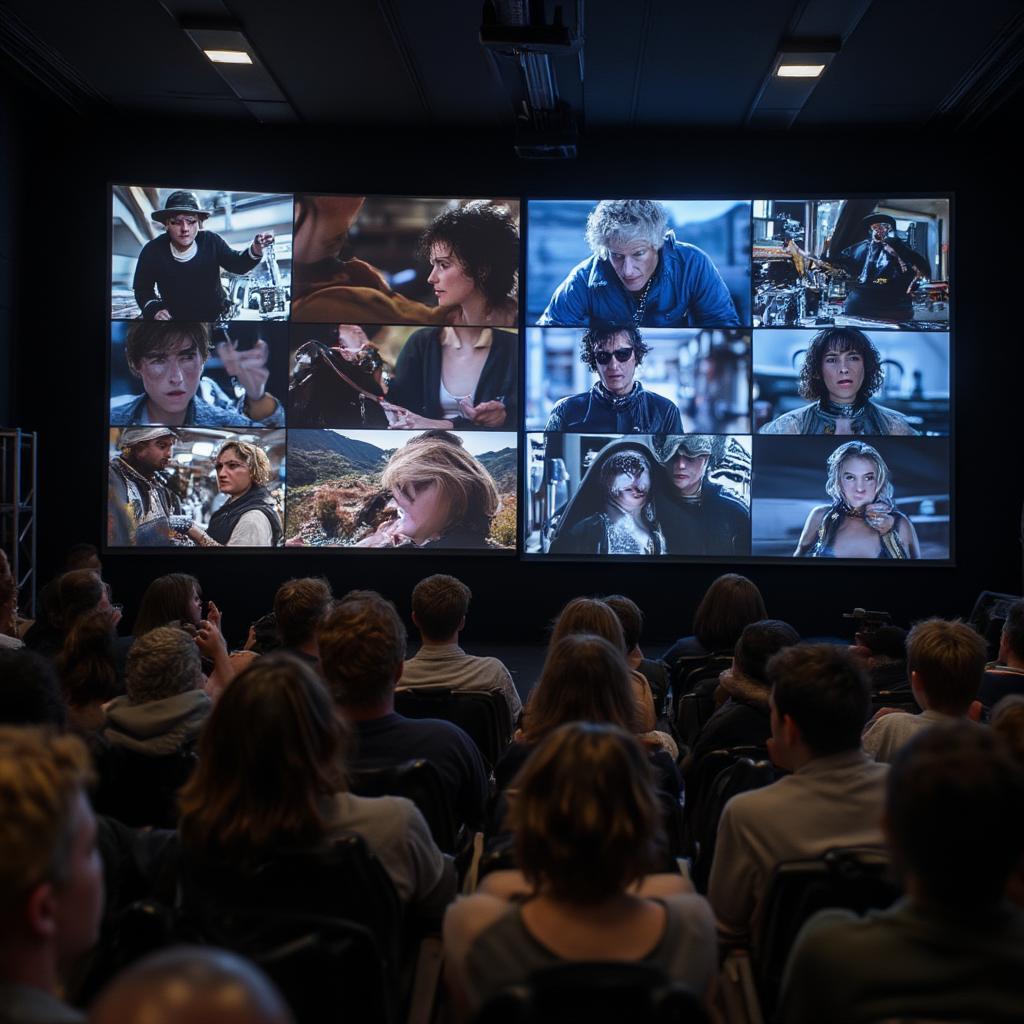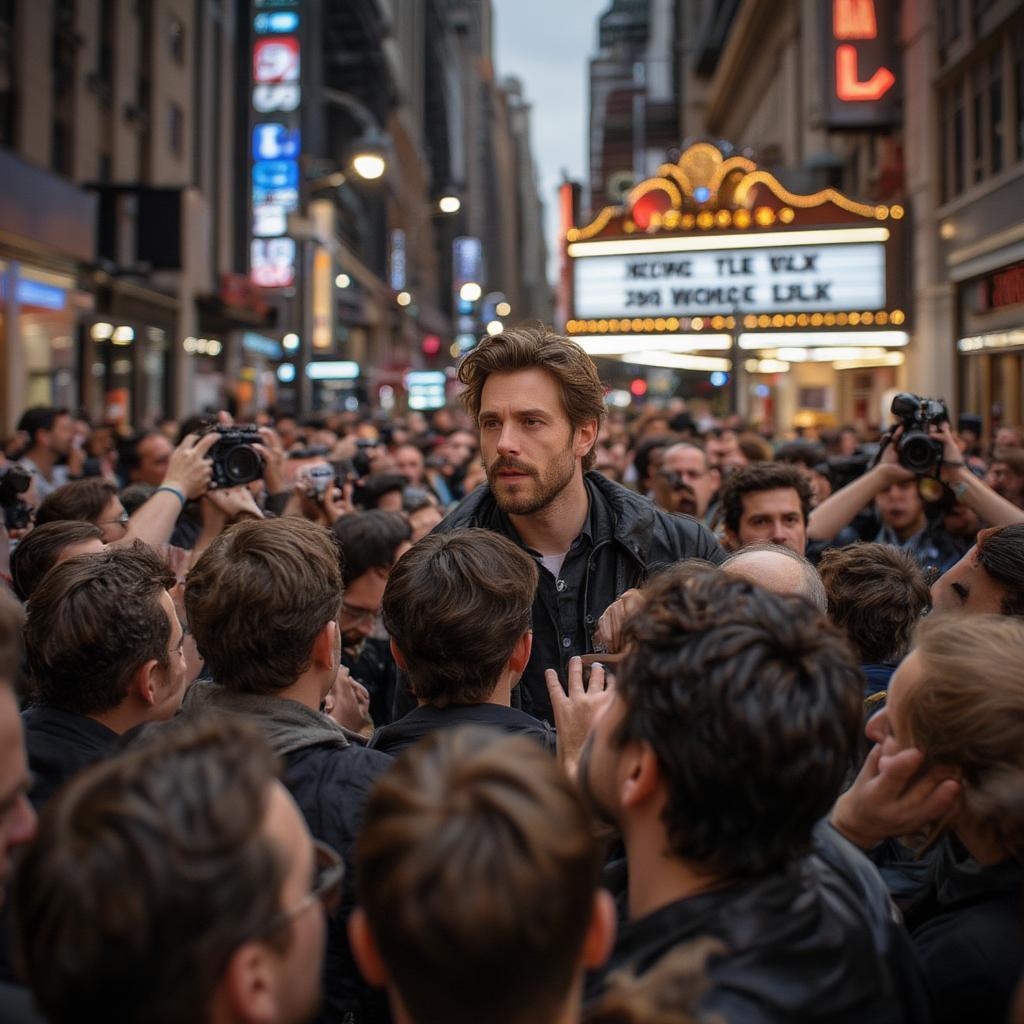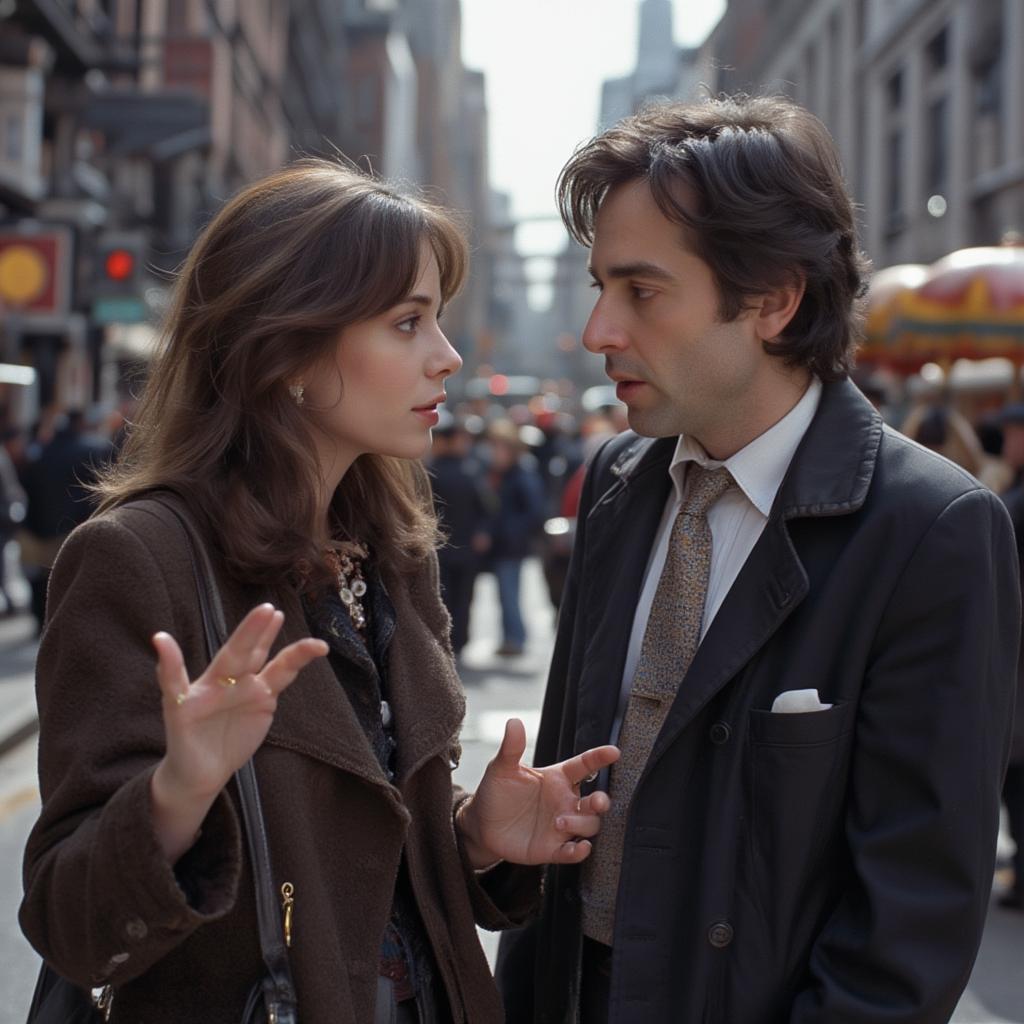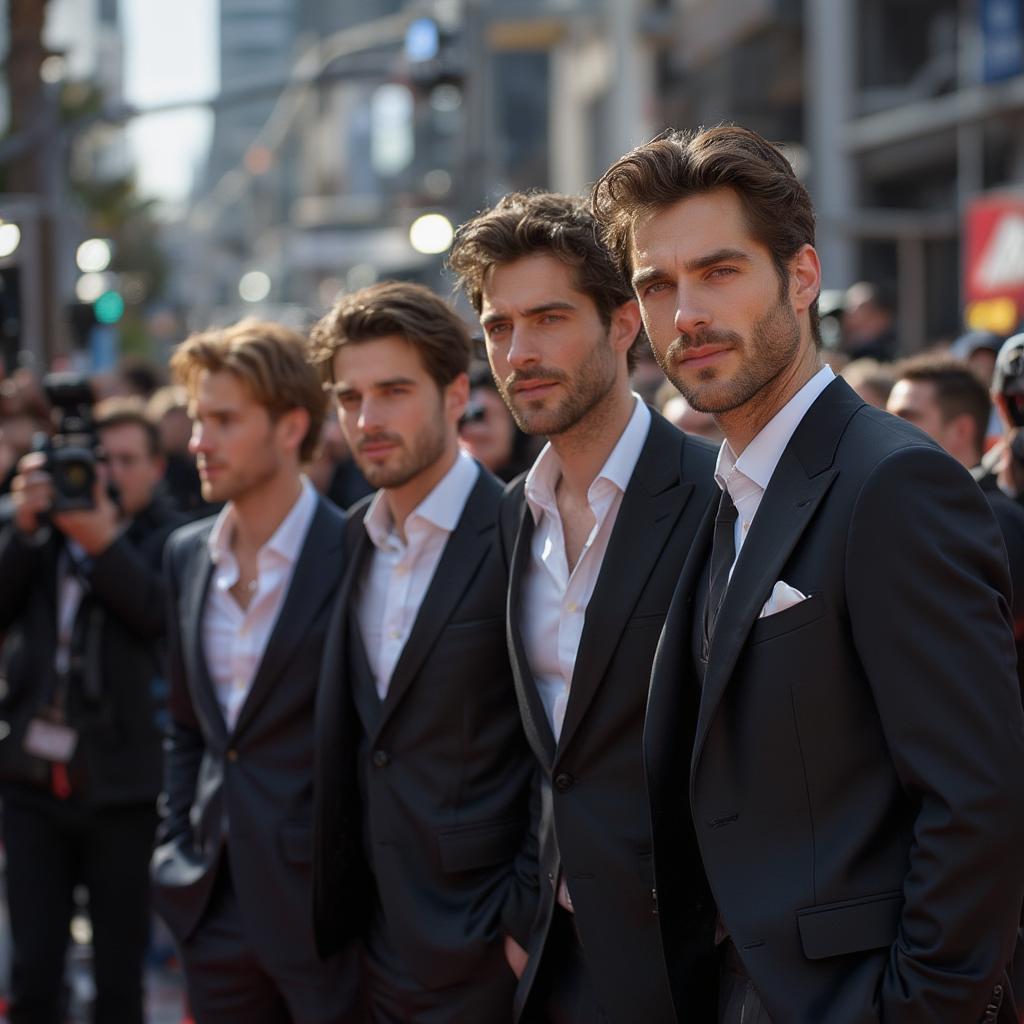The Undeniable Impact of Male Movie Stars of the 70s
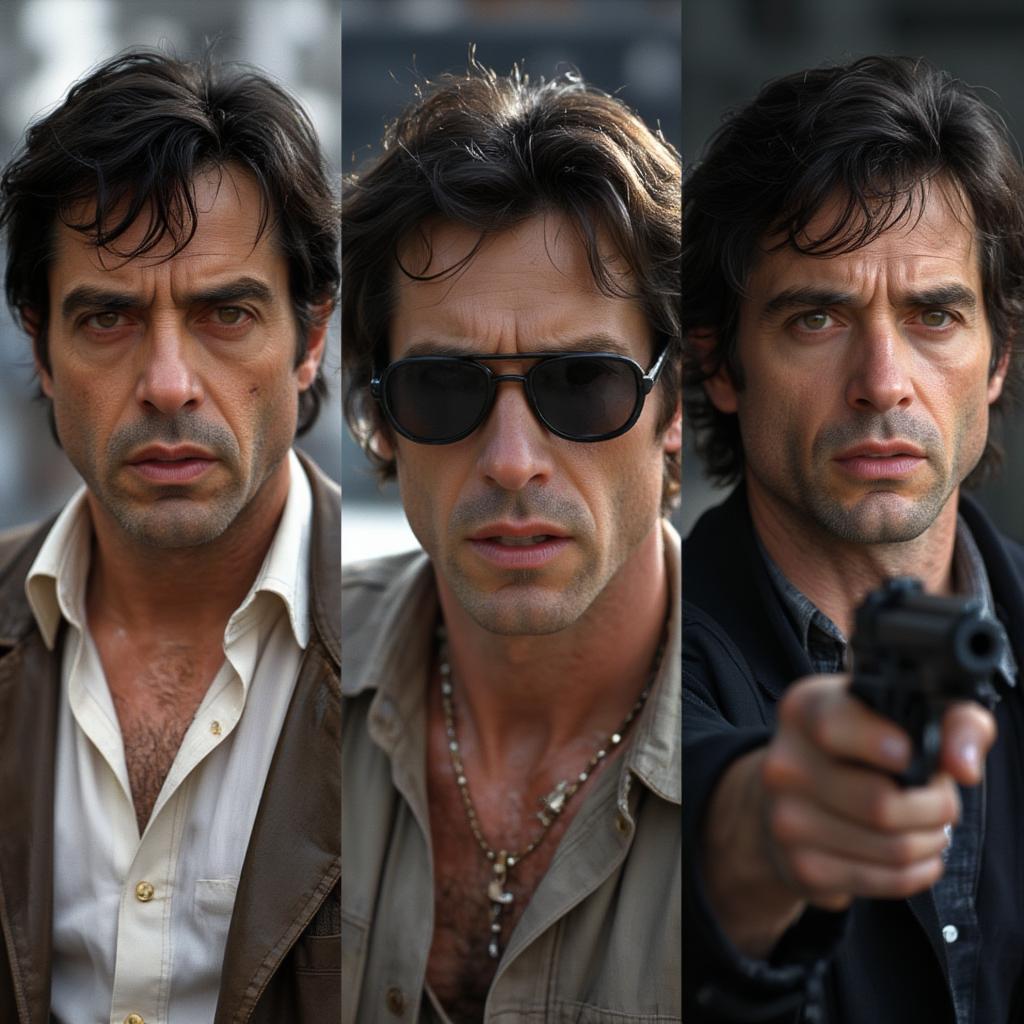
The 1970s marked a significant shift in Hollywood, a period where grit replaced glamour and anti-heroes became the new leading men. This era gave rise to a new breed of Male Movie Stars Of The 70s, actors who captivated audiences with their raw talent, rebellious spirit, and undeniable charisma. These were men who embodied the changing times, reflecting the anxieties, disillusionment, and complexities of a generation grappling with political upheaval, social change, and a questioning of traditional values.
The Rise of the Anti-Hero: Redefining Masculinity in 70s Cinema
The traditional Hollywood hero, often clean-cut, morally upright, and unfailingly heroic, was challenged by a more nuanced and flawed protagonist. This shift was perhaps the most defining characteristic of male movie stars of the 70s. Actors like Al Pacino in “The Godfather” and “Dog Day Afternoon,” Robert De Niro in “Taxi Driver” and “Raging Bull,” and Dustin Hoffman in “Midnight Cowboy” and “Marathon Man” portrayed characters wrestling with inner demons, societal pressures, and moral ambiguities. Their performances were raw, intense, and deeply human, resonating with audiences who saw reflections of their own struggles in these complex characters. 
Beyond the Method: Exploring the Acting Styles of the Decade
While the Method acting style, pioneered by Marlon Brando and others in the previous decades, continued to influence performers, the male movie stars of the 70s brought their own unique approaches to the craft. Jack Nicholson, with his devilish grin and unpredictable energy in films like “One Flew Over the Cuckoo’s Nest” and “Chinatown,” embodied a chaotic brilliance that captivated audiences. Gene Hackman, in “The French Connection” and “The Conversation,” masterfully portrayed characters driven by obsession and paranoia, using subtle nuances and restrained intensity to create unforgettable performances. These actors pushed the boundaries of traditional acting, often immersing themselves in their roles to a degree that blurred the lines between fiction and reality.
The Box Office Titans: Commercial Success and Cultural Impact
The male movie stars of the 70s weren’t just critically acclaimed; they were box office gold. Films like “Jaws,” starring Roy Scheider, and “Star Wars,” featuring Harrison Ford, ushered in the era of the blockbuster, proving that films could be both commercially successful and artistically ambitious. These films became cultural touchstones, influencing fashion, music, and popular culture for decades to come. Did these box office successes influence the rise of action movie stars male? It’s a question worth exploring. Their impact extended beyond the screen, shaping the way audiences consumed entertainment and solidifying the role of cinema as a major cultural force. 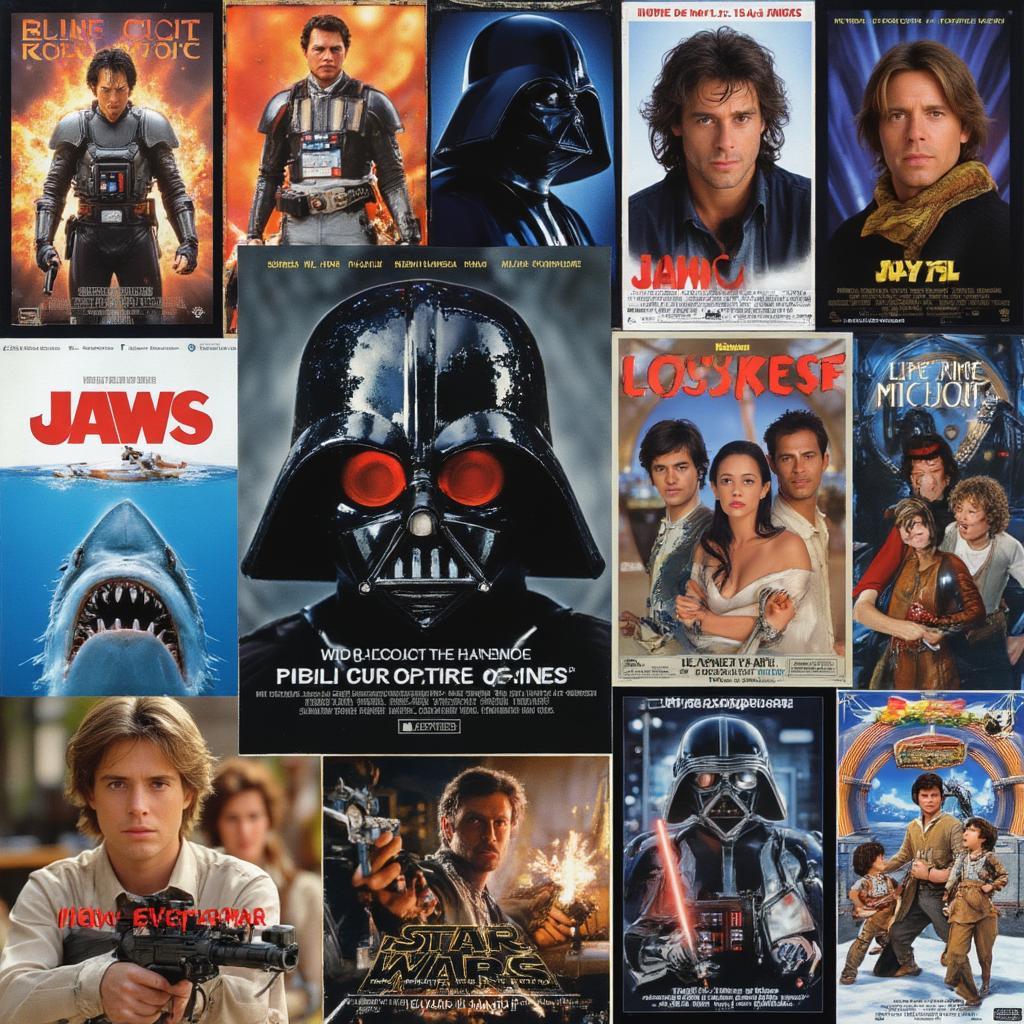
Who Were the Biggest Male Movie Stars of the 70s? A Look at the Icons
The 70s produced a constellation of male stars, each with their unique appeal and contribution to cinema. From the brooding intensity of Al Pacino to the effortless cool of Steve McQueen, the decade offered a diverse range of male talent. Burt Reynolds, with his charming swagger and good ol’ boy persona, became a box office sensation, while Robert Redford represented a more classic Hollywood leading man. These actors, along with many others, defined the cinematic landscape of the 70s and continue to inspire actors and filmmakers today.
The Enduring Legacy: How the 70s Shaped Modern Cinema
The influence of the male movie stars of the 70s can still be felt in contemporary cinema. The emphasis on complex characters, realistic portrayals, and a willingness to challenge conventional storytelling techniques continues to resonate with audiences. “The exploration of flawed characters, as seen in the 70s, paved the way for the anti-heroes we see in contemporary cinema,” says renowned film historian, Dr. David Miller of the University of Southern California. This era established a new standard for acting and filmmaking, one that continues to inspire and challenge artists today. 